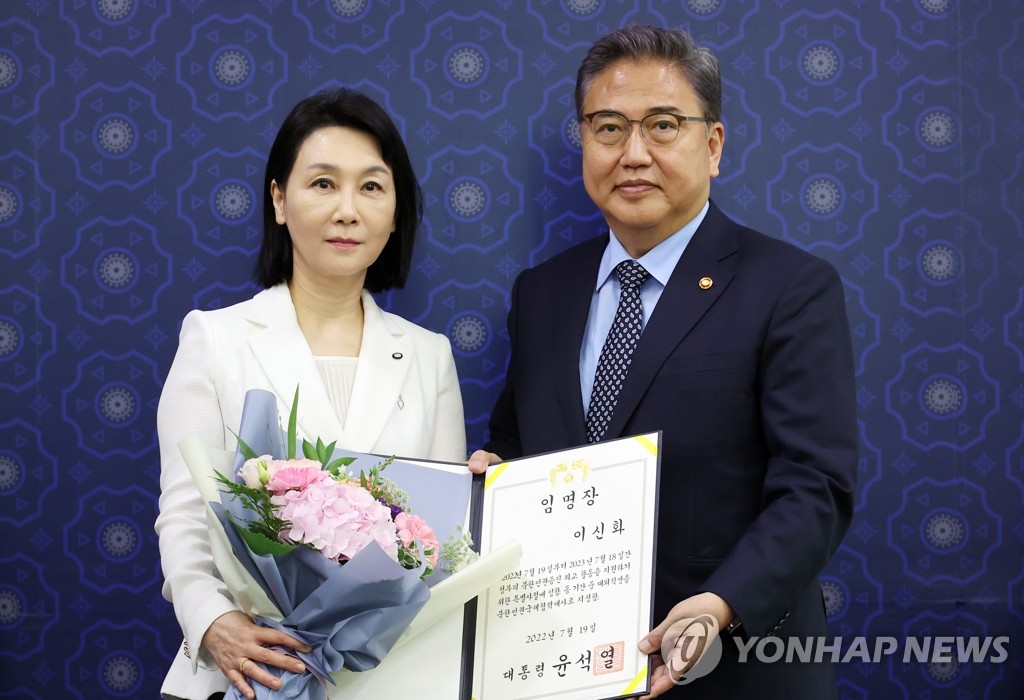- California Assembly OKs highest minimum wage in nation
- S. Korea unveils first graphic cigarette warnings
- US joins with South Korea, Japan in bid to deter North Korea
- LPGA golfer Chun In-gee finally back in action
- S. Korea won’t be top seed in final World Cup qualification round
- US men’s soccer misses 2nd straight Olympics
- US back on track in qualifying with 4-0 win over Guatemala
- High-intensity workout injuries spawn cottage industry
- CDC expands range of Zika mosquitoes into parts of Northeast
- Who knew? ‘The Walking Dead’ is helping families connect
S. Korean envoy on N.K. human rights to visit U.S. this week
South Korea’s new envoy for North Korean human rights will make her first visit to the United States this week since taking office, officials said Sunday.
Lee Shin-hwa plans to meet officials of the State Department and the White House, as well as experts and activists, in Washington, D.C., during her four-day trip starting Wednesday to discuss various pending issues, including Pyongyang’s nuclear threat and missile provocations.
Lee, a political science professor at Korea University, was appointed as the new envoy in July, filling a post that has been left vacant since September 2017.
North Korea’s human rights record has drawn greater international attention since the U.N. Commission of Inquiry issued a report in 2014 after a yearlong probe, saying North Korean leaders are responsible for “widespread, systematic and gross” violations of human rights.
North Korea has long been accused of grave human rights abuses, ranging from holding political prisoners in concentration camps to committing torture and carrying out public executions.
Still, North Korea has bristled at outside criticism, calling it a U.S.-led attempt to topple its regime.

Foreign Minister Park Jin (R) poses for a photo with Lee Shin-hwa, a Korea University professor appointed as ambassador for North Korean human rights, after presenting her with a letter of appointment at the government complex in Seoul, in this July 28, 2022, file photo. (Yonhap)












